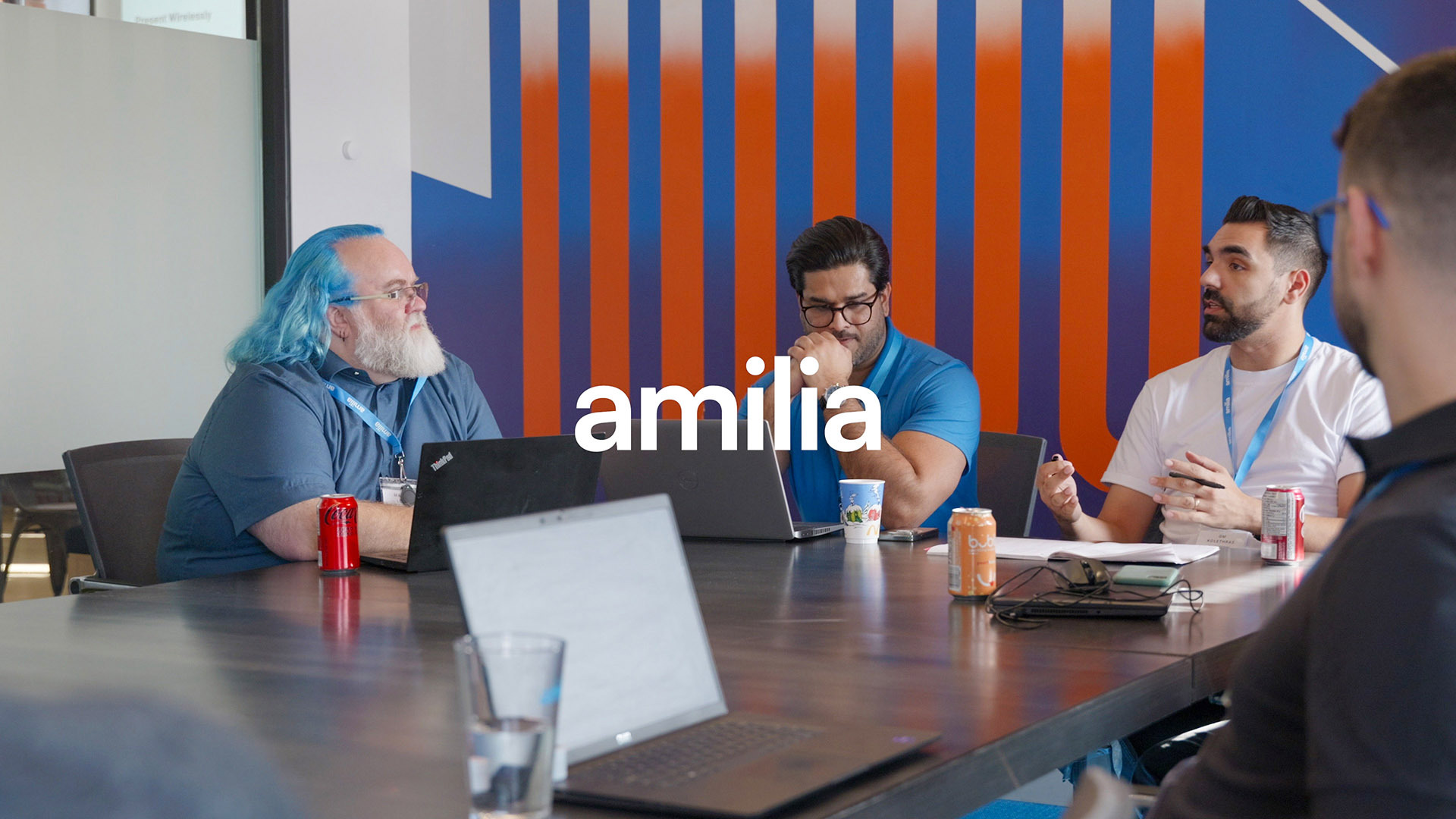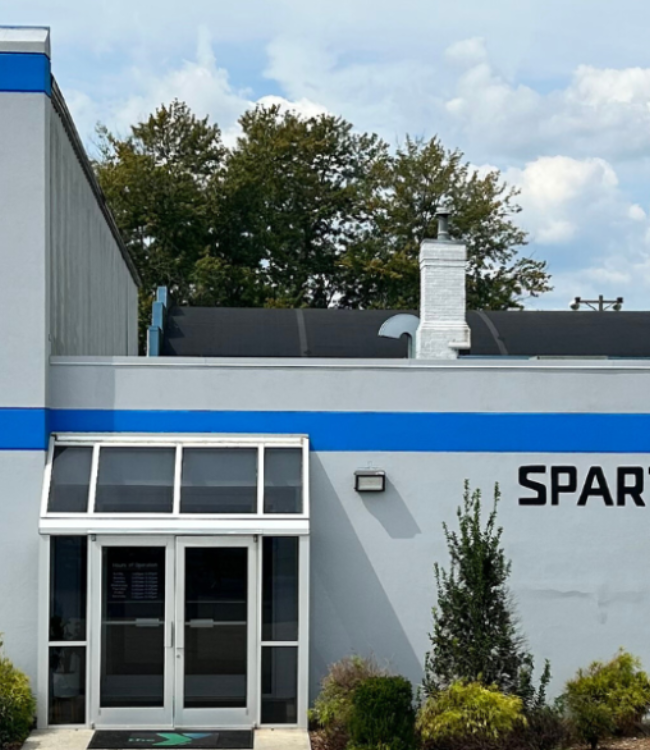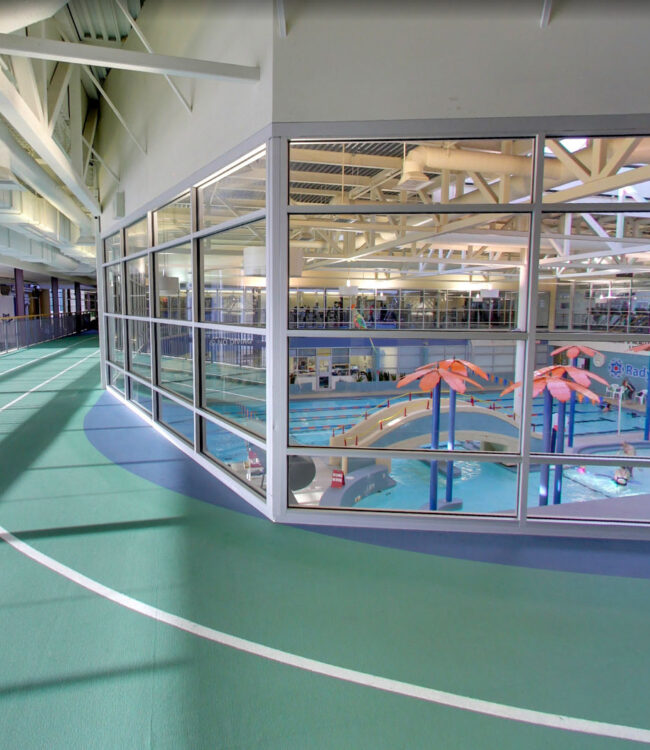“My favorite thing about the software is its flexibility. Every time we’ve tried to add something new or do something different, there are three or four ways to do it right and we can pick the one that best meets our use case.”

By empowering self-service and simplifying operations, the Miles Nadal JCC now spends less time on manual tasks and more time fostering meaningful community connections.

About Miles Nadal JCC
Located in the heart of Toronto, the Miles Nadal Jewish Community Centre (MNjcc) has welcomed millions of people over its 70-year history. The ever-evolving nature of their members speaks not only to the vibrancy and diversity of their neighborhood, but to the greater Toronto area’s own growth over the years. The center offers opportunities for people of all ages and backgrounds to be active, learn, connect and participate in a wide range of cultural experiences. While rooted in Jewish values, the MNjcc is open to all.
The MNjcc is home to the state-of-the-art Phil Granovsky Fitness Centre and Freddie Shore Aquatic Centre, and also houses the Al Green Theatre, four schools, a wide range of arts, cultural and inclusive Jewish community programming, and offers one of the most recognized accessibility and inclusion programs in the city.
With so many programs and activities accessible to thousands of members, it was important for the MNjcc to have robust member management software at its disposal. Until recently, the platform they had been using was certainly not allowing for the smoothest of operations and was a source of significant frustration for the center’s Director of Finance & Information Matthew Lenner.
“There was an online ability to book stuff, to register online for programs – but it was ugly, it was not helpful,” says Lenner. “It was very difficult to get things done because it was just not designed for it. We wanted to start fresh with something new. Something online and built around the customer experience first - because if we were going to change, we wanted to make sure that customers could do a lot of things by themselves. All the things that didn’t exist with the previous software.”
The Challenges
Previously plagued by clunky and difficult-to-navigate software that required significant manual work from users, the MNjcc was also forced to deal with a lack of online self-service options, which led to confusion and extensive staff involvement in routine tasks. Limited IT flexibility and outdated design constrained the user experience and hindered remote use. On top of that, the actual registration experience for members had not improved meaningfully and, in fact, left a lot to be desired.
“It was very difficult to provide customer service or guidance,” he says. “Most of it we ended up doing ourselves for the clients because the online self-serve aspect wasn’t there. We couldn’t sell memberships online. Customers could register themselves for classes, but it was confusing, and they often didn’t understand how. It was badly organized, badly set up.”
At one point, two extra staff members were brought on at the center just to make sure that billing was being handled properly.
“Discounts had to be entered manually. People would have to override prices at times, and we didn’t know why. There were no internal controls or safeguards. There was no ease of use. All those things just had to be done manually.”

An Amilia SmartRec Solution
After doing his homework and scouring the market, Lenner ultimately discovered Amilia SmartRec. It immediately presented a more direct path towards growth and profitability as it freed up the center from needing membership consultants on staff to individually enter all data into the system.
The switch to SmartRec immediately led to operational improvements, ultimately shifting the focus from data entry to customer service. Members now had the ability to self-register, reducing errors and the staff’s manual workload. The center also saw improved reporting speed and accuracy, which assisted in proactive decision-making and resource allocation. The MNjcc was now able to send automated follow-ups, fueling retention strategies and customer engagement via Zapier integrations.
“I have been extremely impressed by Amilia’s level of support,” says Lenner. “When you communicate your issue, they’re knowledgeable enough to go to that level of support of going through it themselves and troubleshooting. They communicate the problem to the development team, and then I’ll get an answer later letting me know what they’re doing to fix it and when it’ll be fixed. You don’t see it in a lot of software providers.”
The member experience itself was also significantly improved, with online registration eliminating wait times, managing expectations and increasing satisfaction overall. The MNjcc regularly see 95-96% of membership purchases and donations made on a monthly basis completed self-serve by members themselves. Furthermore, the overall percentage of self-service for all transactions is consistently 78-80%, month after month.
The function of waitlists and targeted notifications further bolstered service continuity, while data insights helped to tailor services in order to meet member needs and refine program offerings.

“SmartRec is very option oriented,” he says. “It doesn’t force you to do things a specific way. You can really customize and tailor it to how you want to do things. My favorite thing about the software is its flexibility. Every time we’ve tried to add something new or do something different, there are three or four ways to do it right and we can pick the one that best meets our use case.”
In terms of internal collaboration, the center was now able to cross-promote programs between different departments, which strengthened member engagement. Additionally, easily accessible and shareable data allowed departments to break down silos, which fostered cooperation and deeper community connections.
“With the data we can do follow-ups and send out coupons for group classes if their attendance is starting to fall off. We can then look at reporting and connect all that – how many coupons were actually redeemed? Is it working?”
A profitable future
The MNjcc has now been working with the Amilia SmartRec platform for four years and the future is looking brighter than ever.
“Amilia is very good at listening to feedback and trying to make the software better. In the four years that we’ve been with them, it keeps getting better. I can see the commitment to making things better and growing.”
Lenner expresses that the goal moving forward is to “continue to expand on data-driven decisions” for the sake of gleaning more customer insights, refining member personas, and tailoring programming accordingly. In terms of profitability, the aim is to leverage member data for targeted fundraising appeals and retention strategies to enhance both member engagement and long-term sustainability.
“If you’re coming for a pottery class for six weeks and then never come again, why would you donate? But if your kids are taking swim lessons and you’re working out at the fitness center, and you come to a choir concert occasionally, then you’re much more likely to donate.”
Now a much more efficient organization, the MNjcc has been able to put the focus back on the community itself and the rich variety of programming it offers to this vibrant and diverse clientele.
“The strength and connection to the community means that the community will last longer.”
If you are interested to learn how SmartRec could help you and your organization succeed like it helped Miles Nadal JCC, just reach out to our team. We would be happy to discuss it with you!
More Like This




